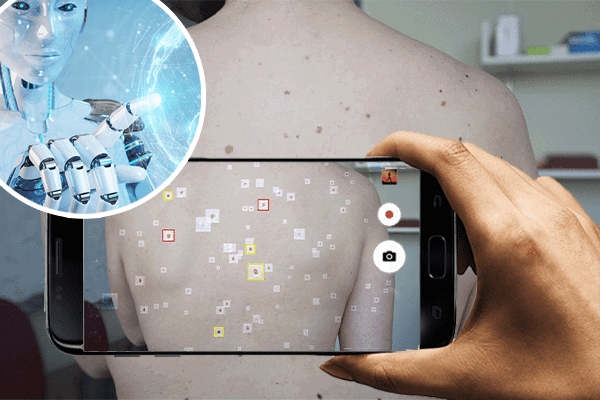Table of Contents
AI Cancer Detection is transforming the healthcare landscape, particularly in the realm of early cancer identification. Through advanced AI-driven diagnostics, medical professionals can detect cancer at its earliest stages, significantly enhancing patient outcomes and survival rates. This article delves into the advancements in AI cancer detection, the innovative technologies at play, and the promising future of diagnosing cancer early.
The Importance of Early Cancer Detection
Detecting cancer early significantly boosts treatment success and survival. Traditional detection methods, like imaging and biopsies, often identify cancer only at advanced stages, complicating treatment. AI-driven diagnostics bridge this gap by spotting cancerous cells and tumors much earlier.
How AI Cancer Detection Work
AI-driven diagnostics use machine learning algorithms and deep learning techniques to analyze vast amounts of medical data, including images, genetic information, and patient records. Key technologies and methods include:
- Medical Imaging Analysis:
- AI algorithms analyze X-rays, MRIs, and CT scans with incredible accuracy.
- These algorithms recognize patterns and anomalies indicating cancer, often missed by the human eye.
- Early and accurate diagnoses result from detecting subtle tissue changes.
- Genomic Data Interpretation:
- AI analyzes genetic data to find mutations and patterns linked to cancer.
- By examining a patient’s genetic profile, AI predicts cancer risks and suggests preventive measures or early interventions.
- Predictive Analytics:
- AI examines patient records and demographic data to predict cancer risk.
- It identifies patterns and correlations, flagging high-risk individuals for further screening and monitoring.
Real-World Applications
AI-driven diagnostics are already in use in clinical settings with promising results:
- Breast Cancer Detection:
- AI assists radiologists in detecting breast cancer from mammograms.
- Studies show AI matches or surpasses human accuracy, reducing false positives and negatives.
- Lung Cancer Screening:
- AI analyzes low-dose CT scans for lung cancer detection.
- These systems identify nodules and early signs of lung cancer, leading to better outcomes.
- Skin Cancer Identification:
- Dermatologists use AI to analyze images of skin lesions, detecting melanoma and other skin cancers.
- AI quickly differentiates between benign and malignant growths, aiding faster diagnosis and treatment.

The Future of AI-Driven Diagnostics
The future of AI-driven diagnostics is promising, with ongoing research aimed at improving accuracy and expanding applications. Potential advancements include:
- Enhanced Data Integration:
- Future AI systems will integrate various data types, including lifestyle information and environmental factors, for a comprehensive cancer risk assessment.
- Personalized Screening Programs:
- AI can develop personalized screening programs tailored to individual risk factors, leading to more effective early detection strategies.
- Global Accessibility:
- AI-driven diagnostics can bring high-quality cancer screening to underserved and remote areas.
- Mobile applications and telemedicine platforms powered by AI could revolutionize global cancer care.
Challenges and Considerations
Despite its promise, AI-driven diagnostics face several challenges:
- Data Privacy:
- Ensuring patient data privacy and security is crucial.
- Robust data protection measures must prevent breaches and misuse.
- Ethical Concerns:
- The use of AI in healthcare raises ethical questions about decision-making and accountability.
- Clear guidelines and regulations are needed to address these issues.
- Integration into Clinical Practice:
- Integrating AI technologies into clinical practice requires training and collaboration between AI developers and healthcare professionals.
- AI tools should complement, not replace, human expertise.
Conclusion
AI-driven diagnostics are revolutionizing early cancer detection, offering new hope for better outcomes and improved survival rates. By leveraging advanced technologies like machine learning and deep learning, AI can analyze medical data with unprecedented accuracy and speed. While challenges remain, the future of AI in cancer diagnostics looks bright, with the potential to transform cancer care and save countless lives.
For more insights into the future of AI in healthcare, continue exploring our series on AI’s latest advancements.



